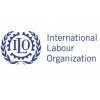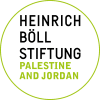Evaluation of PCC project “Psycho-social health for Palestin...
Terms of Reference for the evaluation of PCC project “Psycho-social health for Palestinian families in the West Bank and East Jerusalem”
Introduction
The Palestinian Counseling Center (PCC) is a non-governmental organization that was established in East Jerusalem in 1983, with the aim of developing and improving mental health concepts and services in the occupied Palestinian territories (oPt) at a time when these services were absent. The PCC started intervening at the primary intervention level concentrating its efforts in raising the community’s awareness to the importance of counseling as a form of effective therapy for various psycho-social problems. The PCC then moved to intervene at the secondary level by placing and supervising psychologists, counselors and social workers in schools and primary health clinics. Over the years, the PCC expanded its work through 5 offices in Jerusalem, Ramallah, Nablus, and Qalqilya, and developed a holistic approach to mental health with four-interrelated strategies: 1) provision of psychological therapy to individuals and groups suffering from mental health problems and disorders; 2) provision of prevention programs, predominantly targeting women, youth and children with the aim of preventing the development of mental health problems and advancing gender justice; 3) provision of capacity building programs to individuals and organizations working in mental health to improve the quality of mental health services; 4) lobby and advocacy aimed at influencing positive change of legislations, policies and procedures for improved mental health. The PCC employs 45 staff members and serves over 15,000 direct beneficiaries.
Subject of the evaluation:
The PCC is implementing the project titled “Psycho-social health for Palestinian families in the West Bank and East Jerusalem” from 1st, Jan 2018-3oth June, 2020. This project is a continuation of programs that have been executed throughout the PCC’s 4 main departments: The Clinical department, the Prevention department, the Capacity Building department, and the Advocacy department. Activities up to this point have been implemented in accordance with the PCC’s strategic plan for the years 2010-2014, as well as 2016-2020.
The aim of the project is “to improve productivity through enhanced mental wellbeing of children, youth, adults and groups in Palestinian society”.
Project objectives:
- The mental wellbeing of children, youth, and adults is improved through receiving psycho-social services in prevention and therapy.
- The capacities of individuals and organizations operating in the field of mental health are improved.
- PCC’s emergency preparedness and response plans are updated and operational.
Cause and objective of the evaluation
This is a mandatory project evaluation required by Bread for The World.
The aim of the evaluation is to assess beneficiaries’ level of satisfaction with our services, as well as assessing the quality of services provided in addition to the efficacy of the methods used to the main target beneficiaries at the PCC.
The results will be used for future programming. The findings and recommendations will be used to guide the organization in improving the quality of services provided to beneficiaries, future programming, and to amend on-going interventions (implementation plans) to increase efficiency and effectiveness, guide future strategic planning.
The results will primarily be used by the PCC: (general assembly, BoD, executive staff) andBread for the World, as well as other partner organizations and other donors.
The PCC has conducted several previous external evaluations that assessed whether the main strategies were in line with the needs of the main beneficiaries, and determined whether the structure of the organization was flexible enough to accommodate for the changing nature of our work and civil society interventions in Palestine in general.
This evaluation aims to complement the previous findings to determine the level of satisfaction of beneficiaries with these services.
Content of the evaluator’s offer
CVs of all evaluators involved
Technical/specific proposal: Short explanation and justification of the methods to be deployed.
Financial proposal:
Complete cost estimate that includes both, the fee as well as any ancillary costs to be incurred, such as transport, accommodation, taxes, fees and costs of workshops in the scope of the evaluation etc.
Technical and financial proposals should be submitted by closed envelope to our offices in
Ramallah and Nablus not later than 26/10/2019.
Address: Ramallah Center - Legislative Council Circle – Mosa Towasheh street. Abdullah
Sabat Building - 3rd Floor - Next to Wasel Building.
Nablus Center: An Najah University Street - Above Tal Al Qamar Salon- Alsadder Building-
Telefax: 09-2335946.
For further information, please contact Ms. Masa Ashour Telfax 09-2335946.
Attachment: BftW Evaluation TOR FINAL.doc




















